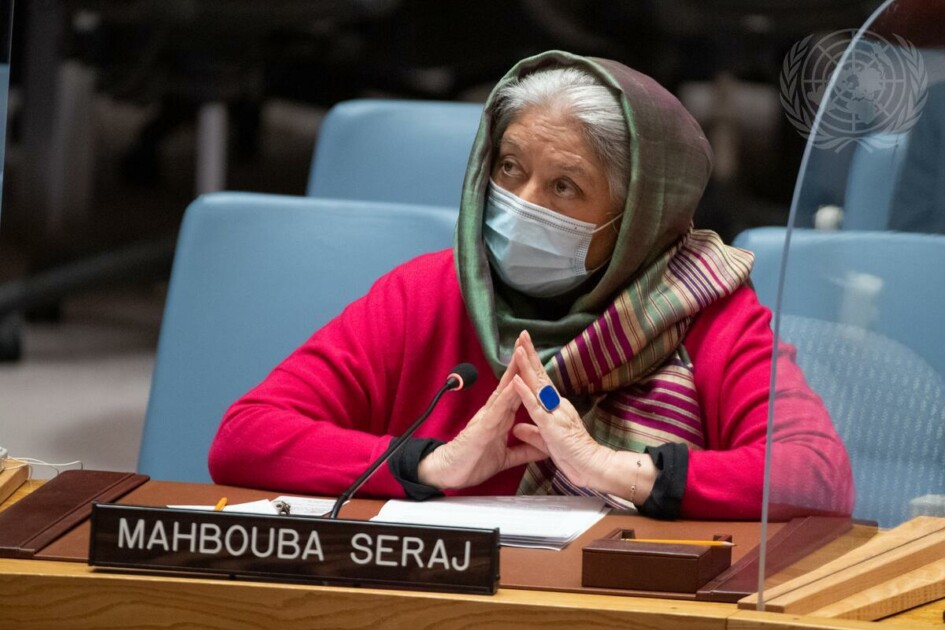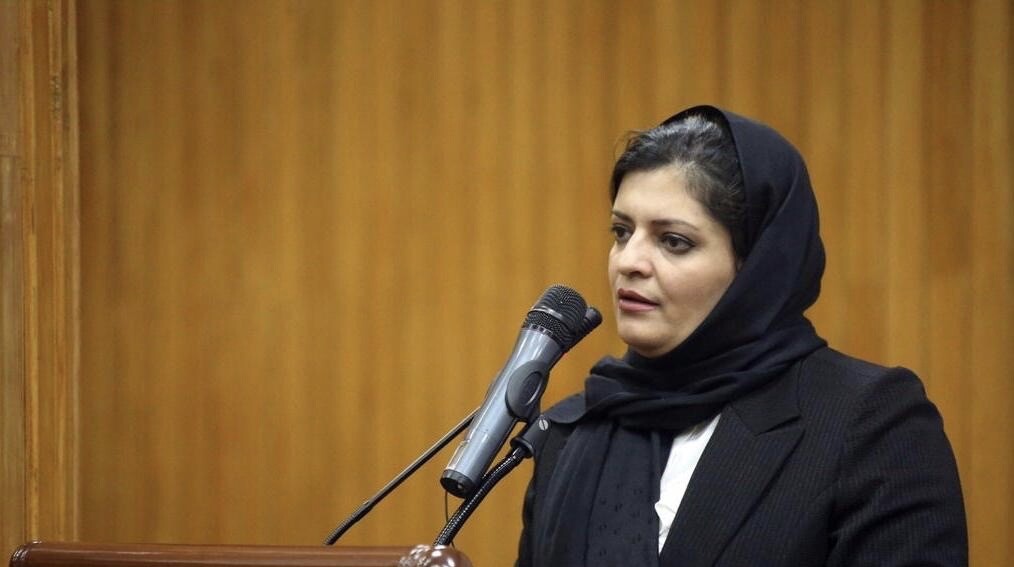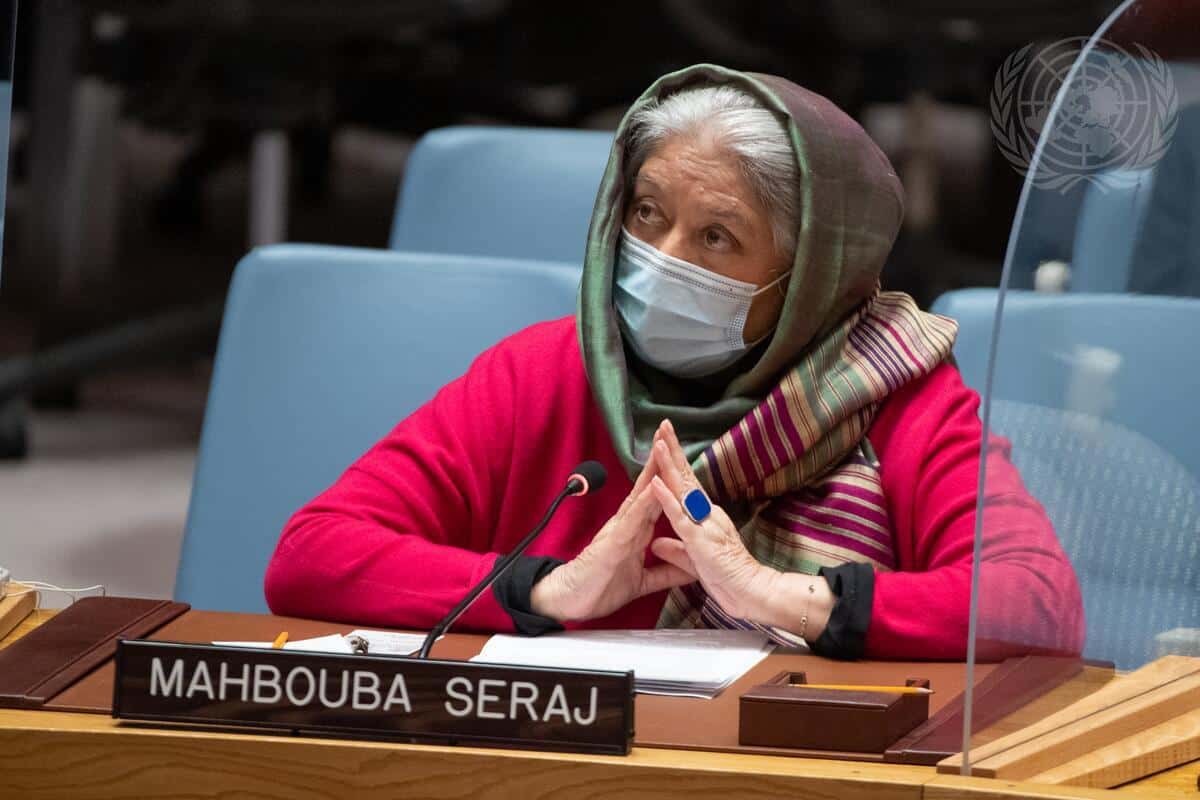Afghanistan
Afghanistan
Afghanistan has been engulfed in violent armed conflict since the fall of the Taliban regime in 2001, and efforts to build sustainable peace while preventing the re-establishment of extremist rule depend on the inclusion of women.
Living in the most dangerous place in the world to be a woman, as the Thomas Reuters Foundation revealed in 2011, Afghani women have emerged as leaders in the peace process— advocating constantly for more inclusive government, and inspiring marginalized groups nationwide to demand a place in the political system. Despite the important role that Afghani women play in bringing about social change in Afghanistan, many barriers to their involvement still exist.
Based on the work of NGOWG members and their partners, the NGOWG advocates for eliminating these barriers by encouraging UNAMA to support the Afghan government in fully implementing the National Action Plan on Women, Peace and Security (NAP), and ensuring women’s full and equal participation in regularly held elections.
Current and Past Recommendations to the UN Security Council (Monthly Action Points)
The representation of women at decision-making levels in Afghan institutions and mechanisms for the management and resolution of conflict is poor, despite being central to SCR 1325 (particularly OP 1). This includes low representation of women in the government ministries and departments primarily responsible for security matters, and in the High Peace Council, which is mandated to provide political and strategic leadership to the Afghan peace and reintegration process. Also of serious concern are the safety of women human rights defenders, and the moves to restrict the independence of women’s shelters and of the Afghan Independent Human Rights Commission (AIHRC).
The Secretary-General’s report and Council debate on the mandate renewal of the UN Assistance Mission in Afghanistan (UNAMA) in March must identify challenges and remedies regarding national and international efforts to advance women’sintegration into the political, economic and social life of Afghanistan, as per SCR 1917 (eg OPs 6d, 12, 23, 33, 35). The Council is therefore urged to:
- Invite an Afghan woman leader to speak at the Council’s March debate on Afghanistan, as per SCR 1325 (OP1);
- Request that the Afghan authorities, the UN, and member states engaged in Afghanistan account for measures taken in Afghanistan to include women and women’s priorities in high-level discussions on peace, reintegration and reconciliation processes. Any Afghan and international agreements with the Taleban and other insurgent groups must not allow for new or amended legislation that does not conform with Afghanistan’s obligations under international humanitarian and human rights law;
- Request withdrawal of the draft regulation on Women’s Protection Centres, and call on the Government of Afghanistan take all necessary steps to promptly and effectively investigate complaints by shelter staff and women seeking protection in shelters of harassment and violence, whether by private individuals or by officials acting in a private or public capacity;
- Reiterate the importance of full cooperation with the AIHRC by all relevant actors, as per SCR 1917 (OP6d and OP34) and call on the Afghan authorities not to restrict the independence of the AIHRC.
The representation of women at decision-making levels in Afghan institutions and mechanisms for the management and resolution of conflict is poor, despite being central to SCR 1325 (particularly OP 1). This includes low representation of women in the government ministries and departments primarily responsible for security matters, and in the High Peace Council, which is mandated to provide political and strategic leadership to the Afghan peace and reintegration process. Also of serious concern are the safety of women human rights defenders, and the moves to restrict the independence of women’s shelters and of the Afghan Independent Human Rights Commission (AIHRC).
The Secretary-General’s report and Council debate on the mandate renewal of the UN Assistance Mission in Afghanistan (UNAMA) in March must identify challenges and remedies regarding national and international efforts to advance women’sintegration into the political, economic and social life of Afghanistan, as per SCR 1917 (eg OPs 6d, 12, 23, 33, 35). The Council is therefore urged to:
- Invite an Afghan woman leader to speak at the Council’s March debate on Afghanistan, as per SCR 1325 (OP1);
- Request that the Afghan authorities, the UN, and member states engaged in Afghanistan account for measures taken in Afghanistan to include women and women’s priorities in high-level discussions on peace, reintegration and reconciliation processes. Any Afghan and international agreements with the Taleban and other insurgent groups must not allow for new or amended legislation that does not conform with Afghanistan’s obligations under international humanitarian and human rights law;
- Request withdrawal of the draft regulation on Women’s Protection Centres, and call on the Government of Afghanistan take all necessary steps to promptly and effectively investigate complaints by shelter staff and women seeking protection in shelters of harassment and violence, whether by private individuals or by officials acting in a private or public capacity;
- Reiterate the importance of full cooperation with the AIHRC by all relevant actors, as per SCR 1917 (OP6d and OP34) and call on the Afghan authorities not to restrict the independence of the AIHRC.
Relevant Resources










